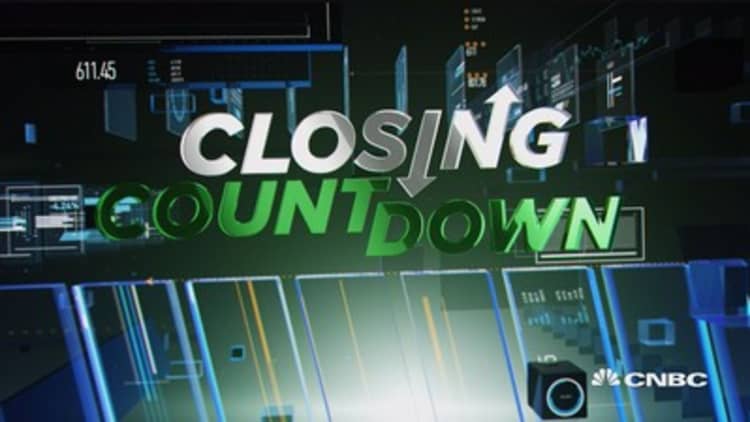
Jaws were dropping as fast as major U.S. airline stocks on Wednesday.
United Airlines and American Airlines both fell 10 percent, their worst drop in nearly three years. Southwest Airlines was down 9.1 percent. JetBlue and Spirit Airlines both declined by nearly 7 percent, and Delta closed down 5.6 percent.
That flash correction certainly didn't sit well with investors already wary that transport names have been lagging the market's overall climb to new highs.
In fact, as more than one market veteran observed, the transports were at six-month lows even as the broad indexes closed just below their all-time highs.
The worry? That according to traditional Dow Theory, that means the overall market is topping and may be headed for a big decline.
If nothing else, it's a rare occurrence.
Asked about the last time the transports were at such lows with the broad market at such highs, Dan Greenhaus, chief global strategist at brokerage BTIG, noted: "Give or take, it happened in August 1999 and then again in January 2000. Dating back to 1960, that's it."
Read More Divergence creates spooky undercurrent for stocks
No wonder investors are nervous.
The transports may not be telling a similar tale of doom this time around, however, and the reason for the selloff in the airlines Wednesday may help to explain that.
Their stumble was triggered not by, say, a lack of customers or a drop in demand. Rather, it came after Southwest said it would expand capacity as much as 8 percent this year.
At the same time, in a series of interviews including with CNBC, American's chief executive officer, Doug Parker, remarked that any efforts the smaller players make to undercut American on price or capacity will be matched by the company.
Many airline investors, sensitive to the industry's historical pattern of trading profits for a race to add capacity and cut price, appeared to panic that another such period is now looming.
After all, this is an industry which, after decades of burning investors, has notably become one of today's most-loved and most-owned sectors.
Read MoreGet on board airlines: Trader
Parker, himself taking his entire compensation in his company's stock, is certainly aware of that risk, said Martin Sass, whose M.D. Sass & Co. holds shares of American and Delta, in an interview.
"I believe that Doug was warning low-cost carriers," said Sass, that if they continue to increase supply growth, American will compete aggressively on price to defend share.
Therefore, low-cost carriers like Spirit "should focus on markets in greater need of air service, and not major hubs, if they want to maintain their profitability," Sass added.
Whether the airline industry repeats its mistakes of the past is for airline investors to ascertain.
As for whether that ought to trigger a broader panic among stock investors? That's probably an easier concern to dismiss.


